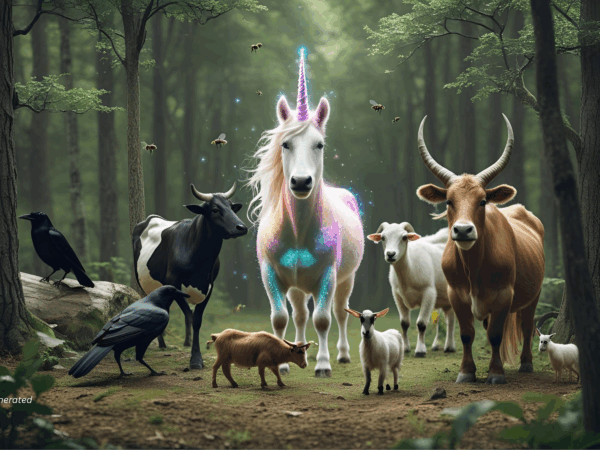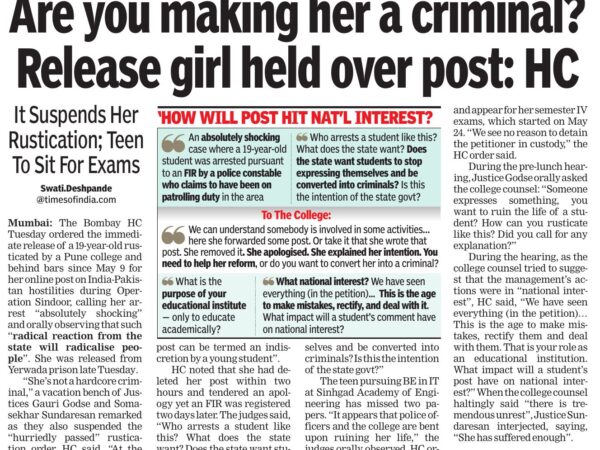What the AI backlash reveals about creativity, access, and the rage of the elite
To begin with, we need to call this what it really is.
This is not about art. Or the artist. This is not about ethics. This is not about protecting creativity or defending culture. And least of all, despite the high-sounding words, it is not about “preserving the humanity of art”, whatever that means.
This is about power.
This is about the privileged few who, for centuries, perched atop high walls built on education, access, language, leisure, and wealth — walls designed not just to elevate, but to exclude. Now, those walls are crumbling, and the moat has sprung a leak.
And they are panicking.
The Myth of Noble Suffering.
We are being told — in voices trembling with righteous grief — that AI hasn’t suffered enough to be worthy of creation. That it hasn’t paid the price of sleepless nights, of existential angst, of writer’s block and charcoal-stained fingers.
Let us unpack that sentimental nonsense.
Since when did suffering become the currency of legitimacy? Since when was slow, painstaking drudgery the only measure of artistic value?
The answer: since the people who could afford to suffer started defining what “real” art was.
They had time. They had money. They had mentors, fellowships, retreats, residencies, patient partners, second homes, free afternoons. They had MacBook Pros and Adobe subscriptions and parents who paid the rent. And now, when someone without any of that uses a tool to leapfrog their gatekeeping — they cry theft?
No. They cry fear. Because the monopoly is ending.
Yes, AI Companies Are Thieves.
Let us be honest. The companies that built these models scraped content they didn’t pay for. Books, images, films, music, code. Without credit. Without compensation. That is theft. Let us not sugar-coat it.
So yes, let us make the AI companies pay. Let us tax them till their eyes water. Let us fund the creators whose works were used. Let us build frameworks for real transparency, real consent, and real control over datasets.
But that does not mean every use of AI is an act of theft. It does not mean the tailor in Meerut using Midjourney to sketch new designs is a criminal. Or the teenage poet in Lagos is a fraud. Or the student in Chennai using ChatGPT to mimic the tone of Vikram Seth is morally compromised.
Because here’s the truth: if a human being studies Quentin Tarantino’s style, or paints like M.F. Husain, or writes like Hemingway — we don’t call it plagiarism. We call it homage. We call it learning.
The only difference now is speed. AI does it faster. Without rest. Without needing food or therapy.
So the real objection is not that AI is creating. It’s that it’s creating too quickly. That it hasn’t suffered enough. That it didn’t pay in blood, sweat, or rejection letters.
But if suffering and slowness are the entry fees for creativity, we’ve invented a very strange and very selective morality.
The Parable of Ekalavya.
You know this story. It’s in our bones.
Ekalavya, denied entry into Dronacharya’s gurukul because of his birth, teaches himself by observing the master from afar. He becomes better than the royal students. And for this, he is punished.
Not praised. Not welcomed. Punished. Crippled. His thumb cut off, so he can never compete again.
That’s not just mythology. That is the blueprint of gatekeeping. And it is playing out again.
You made your work public. You basked in the applause. You enjoyed the praise, the reviews, the shares. And now, when someone learns from it — learns too well — you cry foul?
That is not ethics. That is Dronacharya all over again.
The Shirt Argument.
When machines began making shirts, the privileged howled. “Where is the art? Where is the soul?”
Meanwhile, millions who couldn’t afford a tailored shirt now had access to clean, well-stitched, better-fitting, mass-produced garments. Cheaper. Easier to wash. Easier to wear.
That was not the end of art. It was the end of monopolised art.
The same is happening today. You are not mourning the death of beauty. You are mourning the death of exclusivity.
Yes, Studio Ghibli is exquisite. Its hand-drawn frames are marvels of patience and craft. But if someone uses AI to create something Ghibli-esque in minutes, and the result touches hearts — is that a crime?
No. That is access. That is democracy. That is a better shirt.
Let the Record Show.
We need regulation. We need taxation. We need AI companies to pay. Retroactively, if needed. No question. But do not use their theft to punish the people you once excluded.
Do not pretend to defend artists while you gatekeep art. Do not conflate nostalgia with ethics. Do not confuse suffering with value.
Because if the only way your art has worth is by keeping others out, then maybe it’s not art you care about at all.
Maybe it’s the pedestal.
You are not fighting for creativity.
You are fighting for control.
And you are no longer defending art.
You are simply playing Dronacharya.
Again.



















